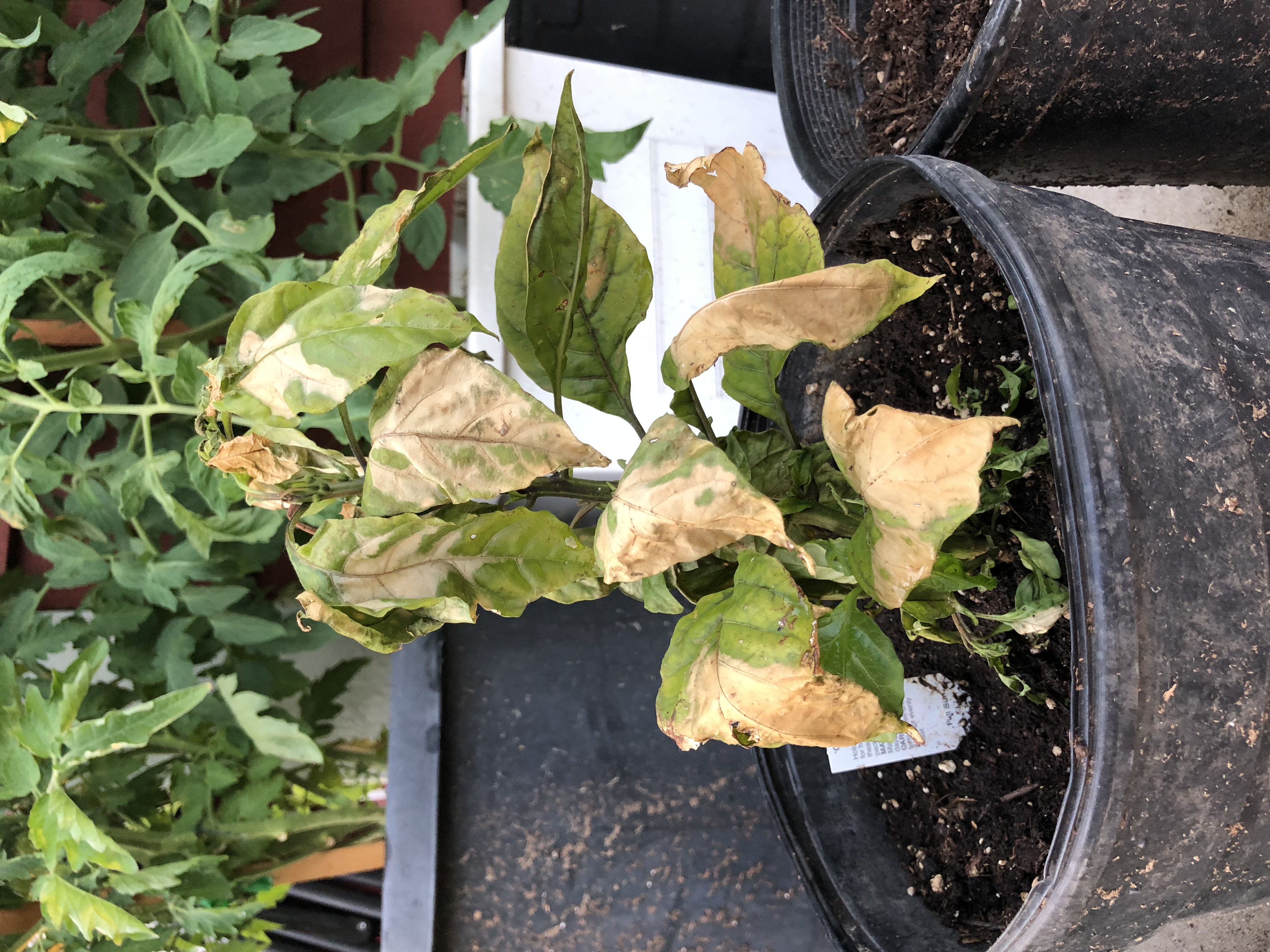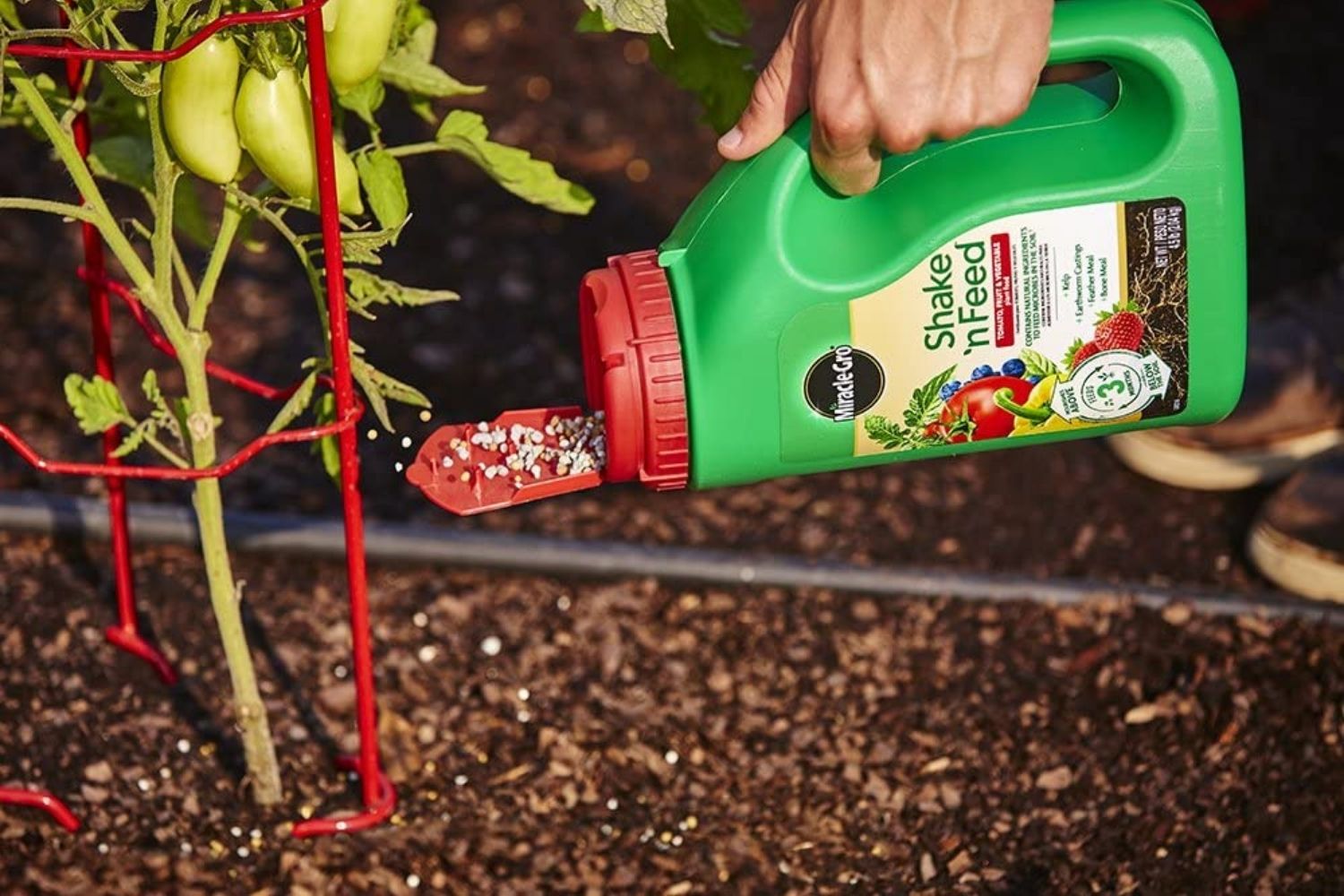Best Fertilizers for Peppers: Optimize Plant Health and Yield
Best Fertilizers for Peppers: Optimize Plant Health and Yield
Blog Article
Organic Vs. Synthetic Fertilizers: Which Is Best for Supporting Healthy And Balanced Pepper Plants?
In the realm of nurturing healthy pepper plants, the selection in between natural and synthetic plant foods stands as a crucial choice with significant ramifications. While both options aim to provide important nutrients to sustain plant development, the nuances of their effect on the soil, plant health, and the setting trigger an argument that echoes throughout the gardening area. Recognizing the distinctive advantages and potential challenges of each plant food type is vital for pepper cultivators looking for to enhance their yields while keeping an eco-conscious and sustainable strategy.
Advantages of Organic Fertilizers
Organic fertilizers supply a sustainable and environmentally-friendly technique to nourishing pepper plants, giving necessary nutrients without making use of artificial chemicals. These natural plant foods are originated from organic resources such as compost, manure, bone dish, and seaweed, advertising soil health and wellness and biodiversity. Unlike synthetic plant foods, organic alternatives launch nutrients slowly, making certain a steady and well balanced supply for pepper plants to flourish.
One significant advantage of organic plant foods is their ability to boost soil framework and water retention. By improving dirt health, natural fertilizers advertise useful microbial activity, which assists in nutrient uptake by pepper plants. Furthermore, natural plant foods reduce the risk of chemical run-off, safeguarding water resources from pollution and protecting the setting.
In addition, natural fertilizers add to long-lasting soil fertility by promoting the growth of beneficial soil organisms. These microorganisms assist damage down raw material, releasing nutrients in a type that is conveniently obtainable to pepper plants. best fertilizers for peppers. By promoting a healthy and balanced dirt ecosystem, organic plant foods support sustainable pepper cultivation practices that profit both plants and the environment
Downsides of Artificial Fertilizers
Synthetic plant foods, unlike their organic counterparts, posture different negative aspects when made use of to nurture pepper plants, influencing both plant wellness and environmental sustainability. One significant disadvantage of artificial plant foods is their propensity to leach nutrients from the dirt quickly. This quick leaching can cause nutrition discrepancies in the soil, triggering plants to experience poisonings or shortages. Additionally, synthetic plant foods can damage advantageous dirt microorganisms, such as earthworms and valuable germs, disrupting the dirt ecosystem's balance.
Moreover, the overuse of synthetic plant foods can add to water air pollution. Excess plant foods not absorbed by plants can wash away right into water bodies, resulting in eutrophication, where algae flowers deplete oxygen degrees in the water, damaging aquatic life. Additionally, artificial fertilizers are generally acquired from non-renewable sources, such as fossil gas, contributing to carbon discharges and environmental degradation throughout their manufacturing.
Nutrient Absorption Contrast
Effective nutrient absorption plays an essential function in the overall wellness and growth of pepper plants. When comparing natural and synthetic fertilizers in regards to nutrient absorption, natural fertilizers have the benefit of supplying an extra well balanced and slow-release resource of nutrients (best fertilizers for peppers). Organic plant foods contain a selection of macro and trace elements that are not just beneficial for the plants but additionally promote healthy dirt microbial activity, which aids in nutrient uptake. On the other hand, artificial plant foods typically give a quick launch of nutrients, which can result in leaching and drainage, causing lower nutrient absorption prices by the plants.
Additionally, natural plant foods boost soil framework and water retention capacity, enabling pepper plants to access nutrients extra efficiently. This improved soil quality helps with root advancement, enabling far better nutrient absorption. Artificial plant foods, although originally improving plant growth due to their high nutrient concentrations, might prevent lasting nutrient absorption by degrading soil health in time.
Ecological Effect Factors To Consider

On the various other hand, synthetic fertilizers, although often even more instantly available and focused to plants, can have destructive results on the environment if not applied properly (best fertilizers for peppers). Their production calls for high energy inputs, resulting in greenhouse gas exhausts and adding to climate adjustment. The drainage of excess artificial plant foods can infect water resources, leading to eutrophication and hurting water communities.
Finest Fertilizer Practices for Peppers
When feeding pepper plants, enhancing nutrient uptake and decreasing ecological influence are vital considerations. To attain this, it is necessary to follow ideal plant food techniques customized to the details demands of pepper plants. One important method is to perform a dirt test before using any type of fertilizers. This examination can identify the pH degree of the dirt and recognize any kind of nutrient deficiencies, assisting you in picking one of the most ideal plant food solution.
One more crucial method is to feed pepper plants at the correct time. Normally, peppers gain from getting fertilizer at growing and afterwards once more when they start to flower. Over-fertilizing can lead to nutrition discrepancies and damage the plants, so it is vital to follow recommended application rates.
Furthermore, choosing a well balanced plant food with an NPK ratio that suits pepper plants' needs is essential. Ultimately, incorporating synthetic and natural plant foods deliberately can help nurture healthy pepper plants while lessening useful content ecological effect.
Conclusion

Organic fertilizers supply a lasting and environmentally-friendly approach to beneficial pepper plants, giving necessary nutrients without the usage of synthetic chemicals. Unlike synthetic plant foods, organic options release nutrients gradually, ensuring a balanced and stable supply for pepper plants to thrive.
Synthetic plant foods, in comparison to their natural equivalents, present various disadvantages when utilized to nurture pepper plants, influencing both plant health and ecological sustainability. When contrasting synthetic and organic plant foods in terms of nutrient absorption, organic plant foods have the benefit of supplying an extra well balanced browse around this web-site and slow-release source of nutrients.Moreover, organic fertilizers enhance dirt framework and water retention capacity, allowing pepper plants to access nutrients extra efficiently.
Report this page